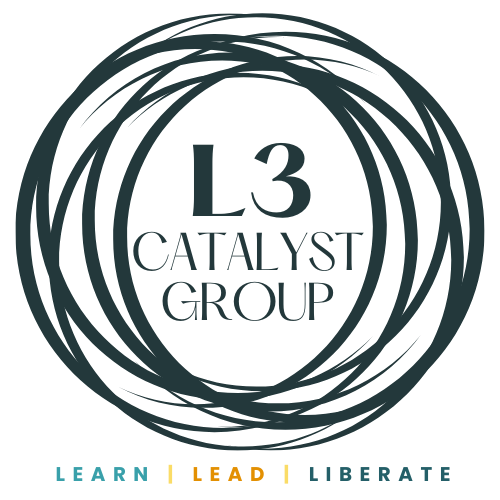Leadership + Power Hoarding
Illuminating White Supremacy Culture Part 8
As a new manager, I operated out of fear and scarcity. I was afraid of not having enough power, so I hoarded power. I was pulled in many directions in a complex, high-conflict environment.
I walked in constant fear, vacillating between the stated commitment to share power — hold power well and responsibly, and support others to be successful and shine — and the lived reality of a strict hierarchy, information hoarding, scarcity mindset, and leaders who were threatened and reactive when anyone named a difficult truth about how things actually occurred in the organization.
At times I took attacks personally, reacted defensively, gave up my own agency, experienced helplessness, and lost my center in the chaos of power hoarding.
experienced helplessness, and lost my center in the chaos of power hoarding.
Context matters, particularly in power hoarding situations.
When questioned, I interpreted it as distrust of our ability to accomplish our goals. I wanted to share power by sharing information and collaborating to solve barriers. But when executive leaders gatekept, hoarded power, and communicated that they didn't need or want my team involved, I responded by thinking that we were victims and were the only ones that genuinely cared about racial justice and equitable outcomes.
In this tense and tricky-to-navigate context, I held power, shared power, and sometimes hoarded power. We can get sucked into operating against our values when we engage in systems that reward power hoarding.
What is power hoarding?
Power Hoarding occurs when we devalue shared power and think power is limited and scarce. We hoard power when we hold power but don't see ourselves as hoarding it and assume that we know what's best for others, particularly those with less power than us.
This is Part 8 of a series unpacking White Supremacy Culture's Characteristics. Catch up on the most recent topics, including Leadership + the Binary, Leadership + Paternalism, and Leadership + Perfection.
This post unpacks the characteristics of Power Hoarding and provides antidotes from Tema Okun and collaborators.
Okun provides the following examples of Power Hoarding:
- Little, if any, value is held around sharing power.
- Power is seen as limited, with only so much to go around.
- Those with power feel threatened when anyone suggests changes in how things should be done in the organization, often feeling suggestions for change are a reflection of their leadership.
- Those with power don't see themselves as hoarding power or feeling threatened.
- Those with power assume they have the organization's best interests at heart and assume those wanting change are ill-informed (or stupid), emotional, and inexperienced, blaming the messenger rather than focusing on the message.
- Clinging and other emotional constriction clouds our vision and catapults us back into our small self with its insatiable sense of anxiety and threat.
As a new manager, I wish I'd known about power hoarding and its antidotes.
I see my younger self on this list. In my early leadership experience I was in a vice of pressure and scarcity. This spilled over onto my team. Sometimes we faced challenges together by sharing information, growing our leadership skills, embracing abundance instead of scarcity, rolling with the changes, strategizing about pushback, and crafting and recrafting our strategy toward anti-racist systems change. Some days we celebrated small wins and experienced great joy in our relationships and movement toward achieving our mutual goals.
Other times we experienced infighting, presuming that others were "ill-informed (stupid), emotional, inexperienced; blaming the messenger rather than focusing on the message" (Okun, 2021).
I wouldn't have been so confused if I'd had this list of power hoarding's characteristics and antidotes. I hope they help you to navigate your power and share it.

Noticing and understanding our penchant for hoarding power is the first step to making changes toward shared power.
Okun provides antidotes to power hoarding on their website White Supremacy Culture - Still Here:
- Include power sharing as an explicit organizational or community value.
- Discuss and define what good leadership looks like and include how a good leader develops the power and skills of others.
- If you are a leader and/or hold power, understand that change is inevitable and challenges to your leadership are often healthy and productive; adopt the "tell me more" approach to challenges.
- If you are a leader and/or hold power, avoid taking challenges personally and return to the principle of collective thinking and action; ask for help with your leadership, particularly when feeling highly defensive.
- If you are a leader and/or hold power, realize your ability and responsibility to support others to hold power well and responsibly, to support others to be successful and to shine, to mentor and support others; realize your ability to support and help others grow reflects well on you (as opposed to attitudes and behaviors that stem from fear, desire to control and/or micro-manage).
- Allow yourself to feel the joy in helping others grow, thrive, succeed, and even exceed (you).
- Make sure the organization is focused on the vision, mission, and values rather than staying "in business" for the sake of staying in business.
- Lean into the racial equity principle of "know yourself" and develop strategies for making friends with your ego so that you are leading and/or acting from a place of integrity rather than fear or anxiety about your importance.
Which characteristics of power hoarding do you recognize in yourself? Are you willing to practice one of the antidotes to power hoarding? Let me know if you want to talk it through. I'd love to hear about how it goes for you.
Fellow leaders and learners, I wish you courage, rest, and beloved community along the journey.


Related Leadership & Learning Letter Topics:
Tags:
White Supremacy Culture’s Characteristics, Scarcity, White Supremacy Culture, teamwork, abundance, leadership, Hoarding, power
August 9, 2023




Comments